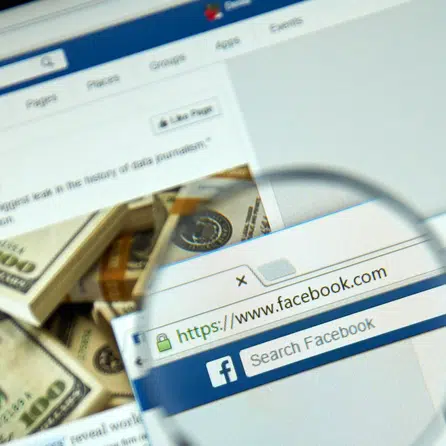Facebook Grant Scam Baits Social Media Users Looking for COVID-19 & Tax Relief
Home Help Center Facebook Grant Scam Baits Social Media Users Looking for COVID-19 & Tax Relief

- Facebook and Instagram users are being targeted by cybercriminals promoting fake grants, particularly grants for COVID-19 relief. Recent grant scams reported to the Identity Theft Resource Center (ITRC) include requests for gift cards to “pay the taxes” if the grant is approved.
- The messages come from cloned accounts or hacked profiles of one of the user’s real Facebook or Instagram friends.
- Anyone receiving a message about a grant via Facebook, Instagram, phone, or text message should report it.
- If anyone wants to learn more about the Facebook grant scam or believes they are a victim, they should contact the ITRC toll-free at 888.400.5530 or by live-chat. Just visit www.idtheftcenter.org to get started.
While Facebook grant scams have been around for a while, the Identity Theft Resource Center (ITRC) has seen a spike in calls and live-chats around this type of scam, particularly a new version that targets people in need of money due to hardships from the COVID-19 pandemic.
The grant scam is not just circulating on Facebook. ITRC advisors have also received cases from victims who claim they were targeted on other social media platforms, including Instagram, owned by Facebook.
Who is the Target
Facebook users appear to be the primary target. However, other social media platforms like Instagram are beginning to see similar scams. The BBB reports that scammers are also creating versions of the Facebook grant scam to target people by phone and text message.
What is the Scam
Cybercriminals attack social media accounts or create lookalike accounts to target friends, family members, or other people trusted by the impacted account owner. Once the account has been compromised, the criminals message the friend telling them about a government grant.
Some of the recent grant names the ITRC has seen are the Department of Homeland Security (DHS) grant, the RWCB grant, the Federal Government Empowerment grant and the Publisher’s Clearinghouse (PCH) Fee Government grant. The victims are then told to call a phone number about the grant and are asked to fill out a form that includes one’s Social Security number (SSN) and Driver’s License (DL) information before the grant is approved. The “friend” may claim they have already applied for the grant and received the funds.
ITRC advisors say, right now, the most common reports of the Facebook grant scam evolve around phony grants for COVID-19 relief. The ITRC also continues to see Facebook grant scams where scammers ask for gift cards to “pay their taxes” associated with an approved grant.
What They Want
Scammers are looking to escape with the victim’s money, their personal information, or both to commit other identity crimes.
How You Can Avoid Being Scammed
- If you receive a Facebook message from a friend regarding a grant opportunity, chances are it is a scam. Do not respond or provide any personal information.
- Inform your friend that their Facebook or Instagram account might be hacked or cloned. A big red flag is if you receive a new friend request from an existing friend and receive a direct or private message about a grant opportunity.
- Report the grant scam to Facebook, Instagram, or other social media platforms where you receive the fraudulent grant message. Once you’ve reported the scam, delete the message.
- Never pay any money for a “free” government grant. A government entity will not ask you to pay a processing fee or taxes for a grant you were awarded, especially in a social media message.
If you believe you are a victim of a Facebook grant scam or would like to learn more, contact the ITRC Center toll-free. You can call (888.400.5530) or use the live-chat function on the company website. Just go to www.idtheftcenter.org to get started.
How much information are you putting out there? It’s probably too much. To help you stop sharing Too Much Information, sign up for the In the Loop.
Get ID Theft News
Stay informed with alerts, newsletters, and notifications from the Identity Theft Resource Center

